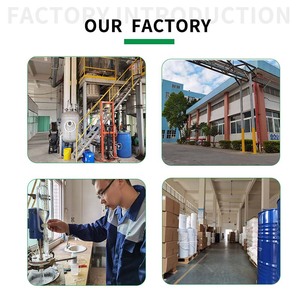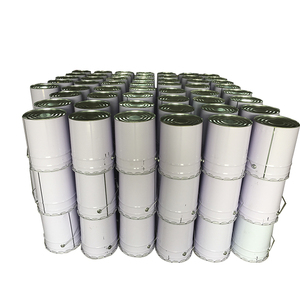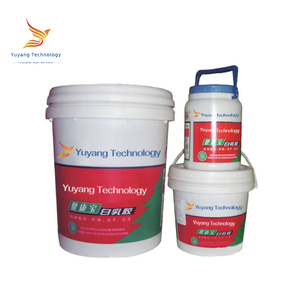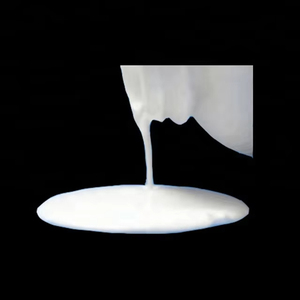
All categories
Featured selections
Trade Assurance
Buyer Central
Help Center
Get the app
Become a supplier

(15878 products available)






































Polyurethane epoxy resin and hardener come in distinct types. They serve different needs in various applications. Here’s a breakdown of the types:
Flexible Polyurethane Epoxy
A flexible type of polyurethane epoxy resins allows for elongation and bending. These characteristics make them suitable for materials that frequently expand and contract. Such materials include automotive parts, electronics, and diverse aircraft components. The inclusion of a hardener that promotes flexibility aids in dampening vibrations. This process supports the extended lifespan of dynamic components in high-stress environments.
Hybrid Polyurethane Epoxy
Hybrid formulations integrate several polyols and hardeners to balance polyurethane's strengths and epoxies. This resin caters to diverse applications within a single product. They provide good adhesion, chemical resistance, and flexibility. Thus making them suitable for the automotive coatings market and in construction, where multiple performance traits are necessary.
Aromatic Polyurethane Epoxy
This type features an aromatic amine hardener that enhances thermal stability and chemical resistance. The increased durability makes this resin ideal for use in extreme environments. Such environments include oil and gas industries, aerospace coatings, and electrical insulation. While this type offers superior performance, its sensitivity to UV radiation can be a drawback. This drawback can, however, be addressed by applying additional UV protective coatings.
Aliphatic Polyurethane Epoxy
This type is less sensitive to UV radiation compared to the aromatic version. In addition, the aliphatic formulation is more resistant to yellowing. These properties make it ideal for exterior coatings and marine applications. They are equally suitable for construction and civil engineering projects where long-term outdoor exposure is anticipated. Their durability and aesthetic retention contribute significantly in these cases.
Waterborne Polyurethane Epoxy
Waterborne systems utilize water as a solvent. This characteristic greatly makes them safer and more environmentally friendly. These coatings find utility in the construction and automotive industries, where regulations on volatile organic compounds (VOCs) are strict. This formulation offers good adhesion and flexibility. Hence, it is suitable for interior applications, including furniture and architectural elements.
Polyurethane epoxy resin has some unique features that impact their performance and application. Here’s a list of those features:
Superior Adhesion
Polyurethane epoxy resins have outstanding adhesion properties to diverse substrates. These include metals, plastics, wood, and ceramics. This versatility in adhesion makes them applicable in industries ranging from automotive to aerospace. They play a critical role in surface preparation in these industries.
Chemical and Environmental Resistance
These resins boast exceptional resistance to chemicals such as solvents, fuels, and diluted acids. This trait increases their suitability for harsh environments in the oil and gas sector, chemical processing plants, and even marine applications. Furthermore, their resistance to moisture and UV radiation enhances applications in outdoor and marine settings.
Flexibility and Toughness
Apart from providing a rigid structure, polyurethane epoxy resins also impart a certain degree of flexibility. This characteristic is crucial in applications requiring durability under stress, such as in automotive parts and construction materials. Additionally, the toughness of these resins contributes to their impact resistance, which is valuable in protective coatings.
Quick Curing Time
The curing time of polyurethane epoxy resins is generally faster than other types of epoxy. This property allows for more rapid application and turnover in industrial settings. Quick curing can be particularly advantageous in manufacturing processes where efficiency and speed are paramount.
Temperature Resistant
These resins can maintain their structural integrity over a broad temperature range. This characteristic makes them suitable for applications that experience extreme heat or cold. The automotive and aerospace industries require adhesives and coatings that can endure varying temperatures. It is to these industries that polyurethane epoxy resins are indispensable.
Polyurethane epoxy resins have diverse uses in various industries. Here’s a list of those uses:
Protective Coatings
PU resins are widely used for manufacturing protective coatings in the construction industry. They offer a tough, durable finish that is resistant to chemicals, UV rays, and abrasion. Hence, this makes them ideal for protecting surfaces exposed to harsh environments. Thus, giving the coatings used in industrial equipment, marine vessels, and architectural facades exceptional durability.
Adhesives
PU resins are applicable in making adhesives suitable for bonding dissimilar materials. They provide excellent adhesion to metals, plastics, and composites. That is why they are increasingly becoming popular in the automotive and aerospace manufacturing industries. In these industries, glue is essential for securing components that experience extreme stresses and temperature variations.
Casting and Molding
The resins' ability to create detailed and dimensionally stable molds is a property that makes them ideal for the casting. This property is particularly valuable in the foundry industry. In this industry, prototypes and models are critical for metal casting. Regardless of whether it is producing mechanical components or artistic pieces, these resins create high-quality molds that ensure precision.
Flooring Systems
These resins are used to create high-performance industrial flooring systems that are durable and easy to maintain. Their chemical resistance makes them suitable for applications in chemical plants, food processing facilities, and pharmaceutical manufacturing. Moreover, they offer waterproofing properties with a seamless, easy-to-clean surface. This surface has also made its way to commercial spaces and warehouses.
Composite Materials
In the field of advanced engineering, PU-epoxy hybrid resins are designed for use in composites. They enhance the mechanical properties of materials used in the aerospace and wind energy industries, for example. These industries specifically rely on lightweight yet strong materials. The hybridization of epoxy with polyurethane extends the usability of the composites for they become more flexible without compromising strength.
Insulation Systems
Besides their normal uses, PU-epoxy resins are also fitted with insulating properties. These properties make them suitable for electrical insulation in the electronics industry. The combination of polyurethane flexibility and epoxy rigidity provides a protective layer for electronic components. In addition, this application is critical for products ranging from consumer electronics to industrial control systems.
When selecting polyurethane epoxy resins and hardeners, buyers should consider various aspects. Here’s a rundown those aspects:
Material Compatibility
Buyers should look for polyurethane epoxy resin and hardener combinations that are compatible with their target substrates. These resins offer versatility as they can be used on diverse materials. Such substances include metals, wood, and plastics. Others include ceramics and concrete. Each application calls for distinct adhesion properties. Therefore, buyers should check whether the resin caters to a specific material to ensure optimal performance.
Application method
Buyers should settle for a resin and hardener combination that aligns with their application method. To facilitate ease of application, some combinations are suited for spray applications. Others are for brushed or rolled applications. Further, certain resins are adaptable to both manual and automated application methods. This flexibility comes in handy to buyers in the coating industry who engage in bulk activities.
Environmental factors
When choosing polyurethane epoxy resins and hardeners, buyers have to consider the environmental factors that will affect the epoxy. For instance, they should go for resins that can withstand extreme temperatures in outdoor environments. Furthermore, selecting UV-resistant epoxies can prevent degradation in resin exposed to sunlight. Additionally, going for waterborne hardeners can help in reducing the VOC levels for a safer working environment.
Performance requirements
Buyers should assess the performance that is required for their intended applications. Those that are intended for industrial or commercial use should go for high-performance polyurethane epoxies. These include those with high chemical resistance, durability, and bonding strength. Moreover, for applications such as road paint with high traffic exposure, buyers should look for formulations that can enhance quick curing with low yellowing possibilities.
Packaging and mixing ratiosBuyers should go for polyurethane epoxy products in packaging formats that will be practical for their projects. For instance, they should go for a kit that contains separate resin and hardener components since this is a requirement for some applications. Additionally, the mixing ratios should be convenient to the end-users. The ratio could be one part for the hardener and two for the resin or vice versa. Ultimately, these are the details that will affect the work’s overall efficiency.
A1. The polyurethane epoxies are ideal for protecting surfaces that are exposed to industrial elements. They offer a blend of outstanding adhesion, chemical, and environmental resistance. In addition, they have flexibility and quick curing. These qualities make them ideal for flooring applications in industries such as manufacturing, chemical, and food processing.
A2. Waterproof epoxy resins form a strong and long-lasting bond with a variety of materials. They bring versatility to construction activities where adhering different materials is a must. They also serve as waterproof coatings that protect surfaces from moisture-related degradation in construction and marine activities.
A3. The fiberglass epoxy resins have superior adhesion properties. They bond fiberglass and other composite materials to various substrates seamlessly. They also enhance the strength and durability of the final product, making the preferred option for manufacturers in construction, automotive, and marine industries who need lightweight yet strong materials.
A4. To increase the lifespan of polyurethane epoxy resins, buyers should properly prepare the surface where they will apply the resin. The application surface should be cleaned and free of debris. Moreover, they should apply the resin at the recommended temperature and humidity for optimal curing. The usage of UV-resistant coatings will also protect the resin from sunlight exposure.
A5. An important factor for extending the lifespan of epoxy resins is proper surface preparation. Before applying the resin, the surfaces should be cleaned and free of debris. Moreover, they should be scuffed to create roughness that will allow the resin to bond better. Epoxy resins adhere to a smooth surface better than a rough one.